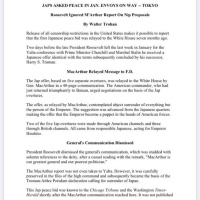
There were two reasons cited for the drop: the first was the realization that "SoftBank’s behaviour as a company increasingly resembled that of a hedge fund, populated with former investment bankers with a massive appetite for risk." This realization was assisted by our weekend report which revealed the main players behind the Softbank trade, which was the brainchild of Abu Dhabi-based Akshay Naheta, a former Deutsche Bank prop trader who now heads SoftBank's new asset management team which invests in public equities, including all those tech companies that have soared in August on the massive gamma melt-up facilitated by concurrent call buying as described previously.
The second reason cited by the FT for today's tumble is that "retail investors, which make up 30 per cent of SoftBank’s shareholder registry, reacted particularly negatively to the company’s latest shift in investment strategy."
1つ目は、「ソフトバンクの企業としての振る舞いが、リスクに強い元投資銀行家で構成されたヘッジファンドに似てきた」という認識があったことだ。 これは、アブダビを拠点とする元ドイツ銀行のプロップトレーダー、アクシャイ・ナヘタ氏の発案によるもので、現在はソフトバンクの新しい資産運用チームを率いて、公開株に投資している。
FT紙が今日の急落の第二の理由として挙げているのは、「ソフトバンクの株主名簿の30%を占める個人投資家が、同社の投資戦略の最新のシフトに特に否定的な反応を示した」ということだ。
"For institutional investors who understand how options trades work, many don’t anticipate a major impact on SoftBank’s earnings,” said Naoki Fujiwara, a fund manager at Tokyo-based Shinkin Asset Management. But he said retail investors “are worried the derivatives trades will lead to major losses again."
Which is understandable: while it is known that SoftBank has made a roughly 100% profit generating $4 billion in profits from the purchase of $4 billion in option premium, it was generally unknown if the bank can hold on to this profit, or in other words if it can book it before dealers move the market aggressively against SoftBank, potentially leading to all gains being wiped out and/or losses. Indeed, this is what the FT reported just this morning:
While SoftBank’s huge derivatives bet on selected US stocks has worked for now, leaving the Japanese group with large, albeit as yet unrealised, profits, a continued pullback in equity markets could erode returns.
Well, it appears that in keeping with its newly-found reputation of a hedge fund, and contrary to widespread speculation that the Japanese conglomerate is still on the hook, SoftBank has already unwound a majority of its public holdings.
We know this thanks to a little-noticed conference call that took place in late August, days before we revealed SoftBank's role in the marketwide gamma grab. The call, which took place on August 26 and was held by Morgan Stanley's media sector specialist covering SoftBank and was first noticed by Thunderdome Capital, emphasized several things:
"東京に拠点を置く信金アセットマネジメントの藤原直樹ファンドマネージャーは、「オプション取引の仕組みを理解している機関投資家の多くは、ソフトバンクの業績に大きな影響を与えるとは予想していない」と述べた。 しかし同氏は、個人投資家は「デリバティブ取引が再び大きな損失につながるのではないかと心配している」と述べている。
ソフトバンクが40億ドルのオプションプレミアムを購入したことで、ほぼ100%の利益を上げたことは知られているが、この利益を維持できるかどうか、言い換えれば、ディーラーがソフトバンクに対して積極的に市場を動かす前に、その利益を計上できるかどうかは、一般的には不明であり、すべての利益が一掃されたり、損失が発生する可能性がある。 実際、これは今朝のFT紙が報じたものである。
ソフトバンクの米国株への巨額のデリバティブ投資は今のところうまくいっており、日本のグループはまだ未実現ではあるが多額の利益を得ているが、株式市場の引き下げが続けば、リターンが減退する可能性がある。
さて、ヘッジファンドとしての新たな評判を維持するために、また、日本の財閥がいまだにフックにかかっているとの憶測が広まっているのに反して、ソフトバンクはすでに公開株の大部分の保有を解消したようだ。
これを知っているのは、ソフトバンクが市場全体のガンマ線奪取における役割を明らかにする数日前の8月下旬に行われた、あまり知られていない電話会議のおかげである。 この電話会議は8月26日にモルガン・スタンレーのメディアセクターの専門家がソフトバンクを取材し、サンダードーム・キャピタルが最初に注目したもので、いくつかの点が強調されていました。
www.DeepL.com/Translator(無料版)で翻訳しました。

























